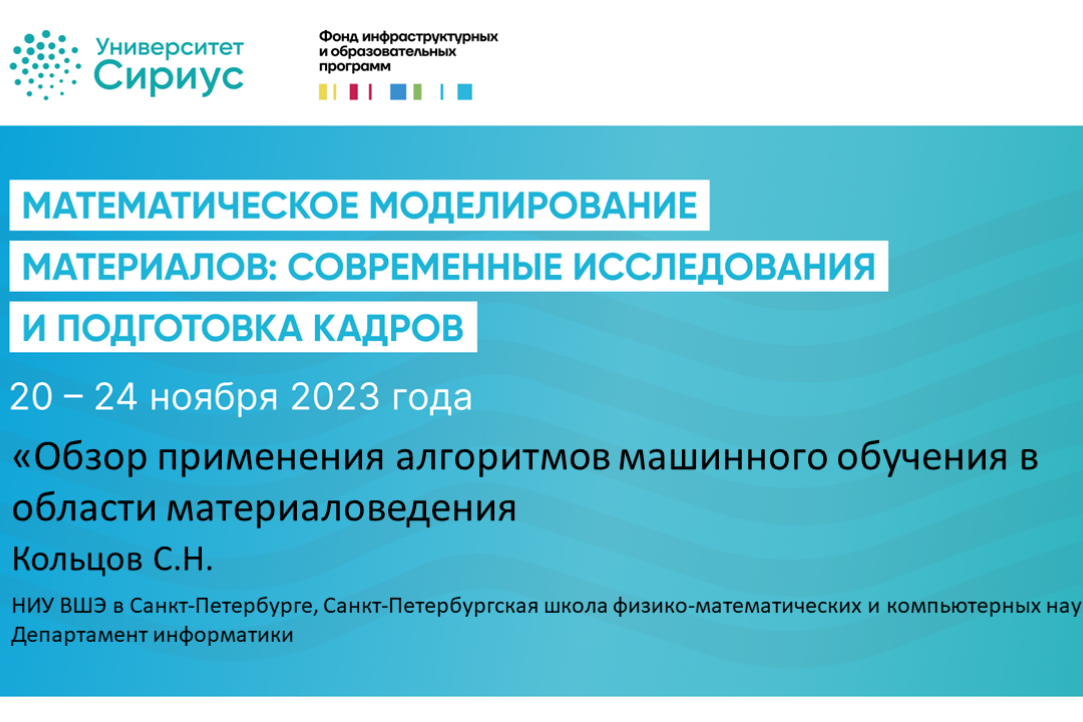Sergey Koltsov spoke at a seminar at Sirius University
From November 20th to November 24th, 2023, a seminar on "Mathematical Modeling of Materials: Modern Research and Training of Specialists" took place at Sirius University of Science and Technology. On November 21st, Sergey Koltsov, a leading researcher from the Laboratory of Social and Cognitive Informatics, gave a presentation at the event.

The main theses of the presentation:
Materials Science is an interdisciplinary field that employs concepts and methods from physics, chemistry, biology, and mathematics to study the properties and behavior of materials. In recent years, machine learning methods have become an integral part of this area, aiding researchers and engineers in predicting new materials, developing, and optimizing processes and systems. Machine learning is actively used in various areas:
Predicting Material Properties: Machine learning is used to predict material properties such as strength, corrosion resistance, thermal conductivity, and others. This speeds up the development of new materials, minimizing the time and cost of experiments.
Process Optimization: Machine learning algorithms can optimize material production processes like heat treatment, forging, casting, etc. This helps improve product quality, reduce costs, and increase efficiency.
Development of New Materials: Machine learning methods can create new materials with predetermined properties. This is done by training models on existing data about materials and their properties, then using these models to predict the properties of potentially new materials.
Analysis and Classification of Materials: Machine learning can be used to analyze and classify materials based on their properties. This can be useful for identifying unknown materials or automatically selecting materials for specific applications.
Quality Control: Machine learning can be used to detect defects and deviations in material production processes. This allows for quick problem resolution and prevents the production of low-quality products.
In summary, machine learning is a powerful tool that can significantly improve the development and production processes of materials. However, its successful application requires a deep understanding of both machine learning methods and the specifics of the materials and processes being studied. Therefore, the main directions of machine learning used in materials science were discussed. An overview of neural network models for solving differential equations was presented. Examples of using machine learning algorithms to solve problems in materials science, as well as open-source projects applying machine learning algorithms in this field, were explored.
